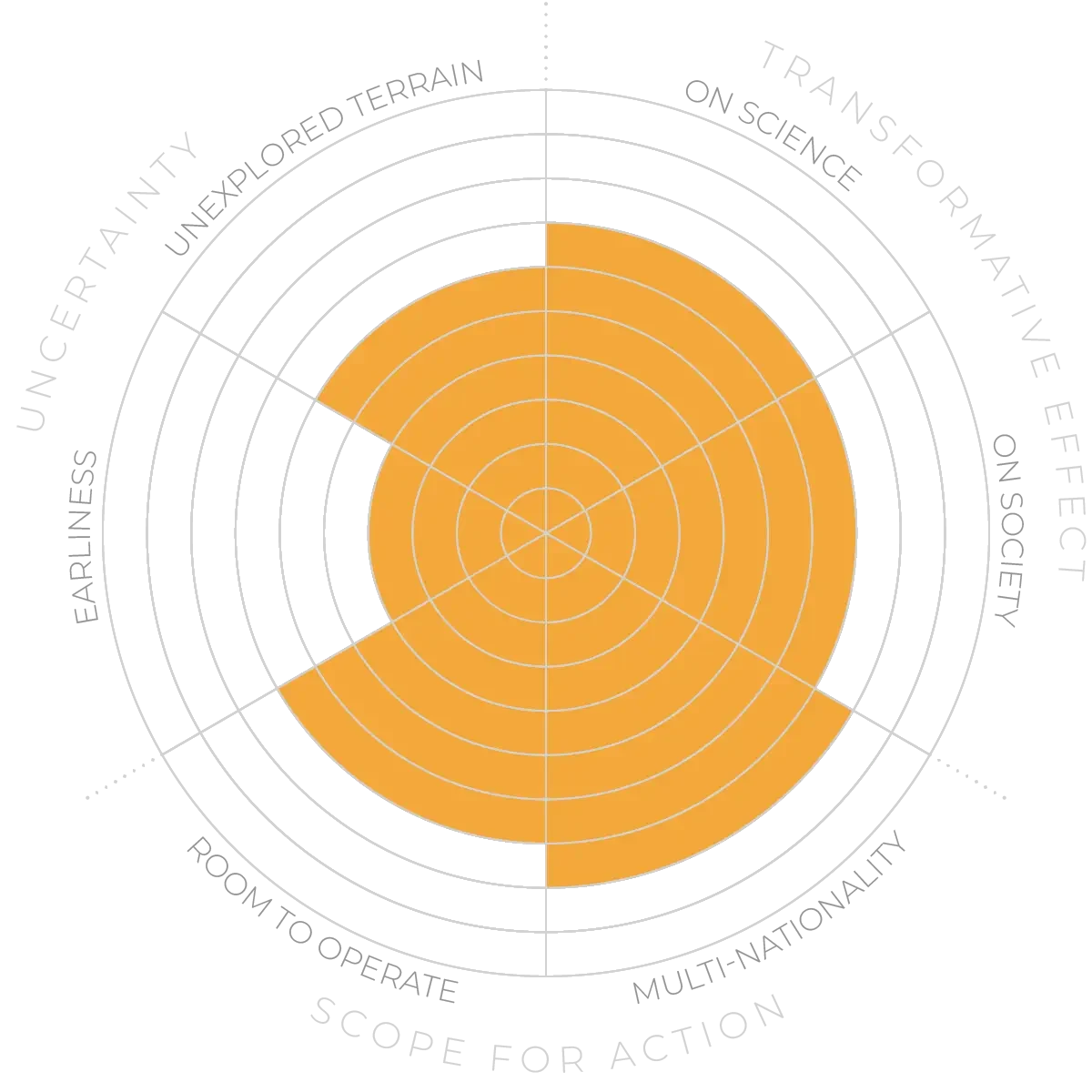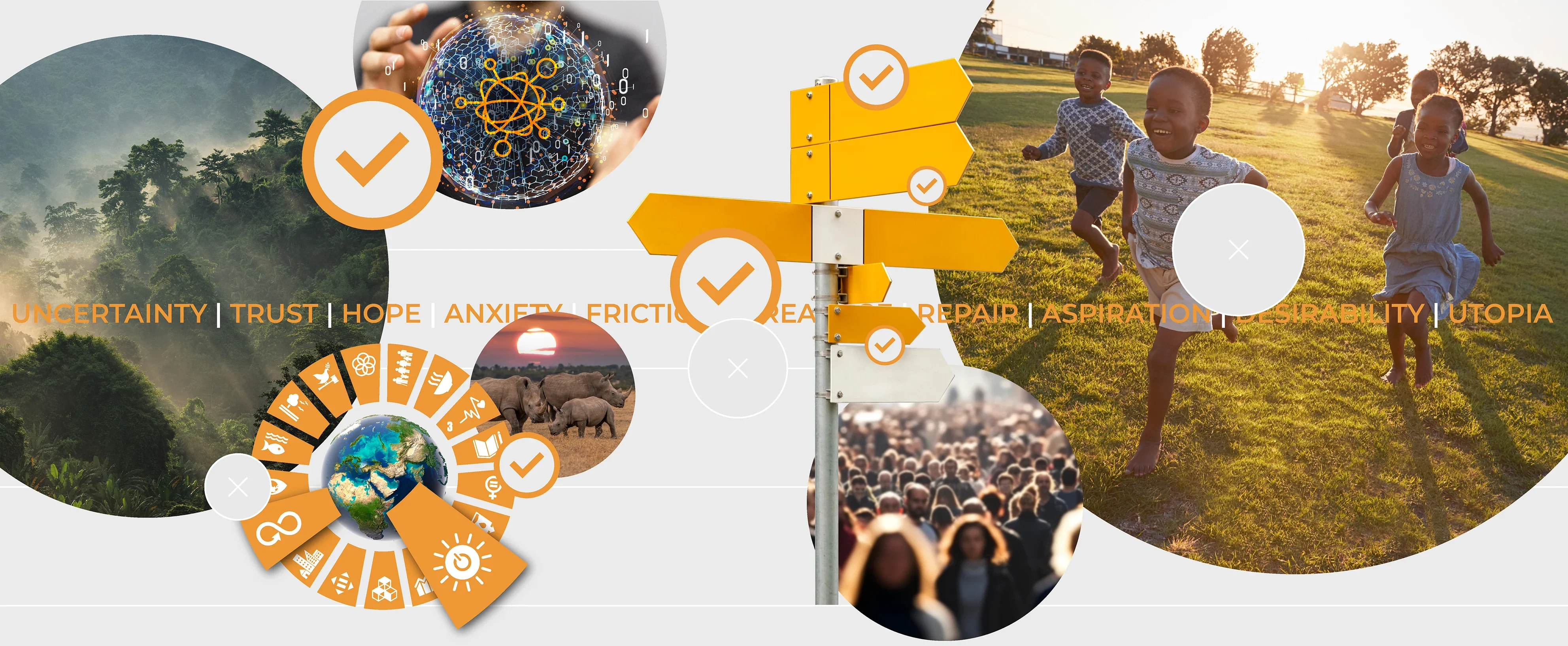Future Horizons:
10-yearhorizon
Interdisciplinary theories drive decision-making
25-yearhorizon
Just, sustainable and digital futures arise
Contrastingly, social scientists, humanities and design research theories from the Global South and North, and treat futures as emergent, possible, plural, situated, contingent and not necessarily causal or linear. To embrace the conditions and experiences of futures aligned with this theoretical perspective a series of concepts have been proposed and tested. These include (but are not limited to): uncertainty, trust, hope, anxiety, friction, breakage, repair and aspiration, desirability and utopia. This framework can be used to ask how emerging technologies might be reshaped by the agency of people who use them in society and what this implies for realistic and plausible community futures; or how ethical futures might be shaped when plural preferred futures exist in society, for example in the present dialogue relating to just transitions to net zero-carbon emissions. Often these challenges cannot be solved by linear theories of futures, where technology is thought to simply impact on society or where building adaptive systems is assumed to lead to resilient societies.
Bringing social-science theories and concepts to bear on technical and system solutions can improve our ability to develop plausible, realistic and ethical solutions and achieve goals of inclusive and just futures.
Theories and concepts for plural futures - Anticipation Scores
The Anticipation Potential of a research field is determined by the capacity for impactful action in the present, considering possible future transformative breakthroughs in a field over a 25-year outlook. A field with a high Anticipation Potential, therefore, combines the potential range of future transformative possibilities engendered by a research area with a wide field of opportunities for action in the present. We asked researchers in the field to anticipate:
- The uncertainty related to future science breakthroughs in the field
- The transformative effect anticipated breakthroughs may have on research and society
- The scope for action in the present in relation to anticipated breakthroughs.
This chart represents a summary of their responses to each of these elements, which when combined, provide the Anticipation Potential for the topic. See methodology for more information.



